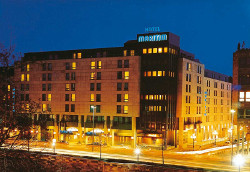Authenticity of Olive Oil and other Vegetable Oils
10-12 April 2016, Nuremberg, Germany
In addition to the quality assessment of olive oil and other vegetable oils, the need for authentication is of major concern for
consumers and the food industry. Not only expensive and valuable oils such as olive oil or argan oil, but also cheaper oils purchased
in high quantities may be subjected to different kinds of food fraud. The aim of oil authentication is to protect the consumer from
adulteration and the industry from unfair competition.
Today, olive oil is the only oil in commerce for which a legal framework exists with many official methods to characterize the oil quality.
For all other oils only national or international standard definitions of the quality such as the Codex Alimentarius are available.
Traditionally, the characterization of oils has been based on one or more constituents such as fatty acids, phytosterols, tocopherols, waxes,
the triacylglycerol composition or markers such as sesamolin in sesame oil, This information is not enough to answer all the questions by
comparing with known samples or legally established limits. In these times, not only the identity of oils is of interest due to its
labeling as “organic”, “virgin”, “GMO-free”, but also the specific geographic regions they are from are important purchasing arguments.
Therefore, questions regarding the geographical origin, genetic variety, quantification of blends of vegetable oils or detection of
refining treatments have to also be answered, ideally by the use of fast and rapid methods that are easy to handle.
More and more general methods come into the focus of interest which can provide information on more than one parameter at the same time.
Such methods are fingerprinting techniques like NIR, MIR and NMR spectroscopy, but also chromatographic methods like GC, GCxGC, LCxGC or LC
with mass selective detectors are in use, which analyze the metabolic profile of oils. In combination with chemometric techniques such as
Principle Component Analysis or Linear Discriminant Analysis these methods can be used to identify parameters of high discriminatory
power to answer the above mentioned questions.
It is widely accepted that there is a strong need for the harmonization and validation of methods to face the problems concerning the
authenticity confirmation of olive oils and other high price vegetable oils. A part of the Horizon 2020 program initiated by the European
Commission (SFS14-2014/2015) is open to development, validation and harmonization of analytical methods and quality parameters for olive
oil that specifically address technical authenticity issues:
These issues concern in particular
1) The blend of extra-virgin olive oil or virgin olive oil with soft deodorized olive oil,
2) The blend of extra-virgin olive oil or virgin olive oil with other vegetable oil. Beyond the case of olive oil, there is also a strong
need for better coordination of research in the area of food authenticity, integrity and traceability across the food supply chain between
Member States and Associated Countries.
The aim of the symposium is to give an overview on the different aspects of authenticity of olive oil and other vegetable oils, from the legal
regulations and approaches to traceability via the statistical techniques to the general and specific analytical aspects. This symposium will
present new and fast methods to proof the quality and authenticity of olive oil and other edible oils and the participants will have the chance
to discuss with outstanding experts the different aspects in the field of authenticity.
This symposium is aimed at all people working as legal key opinion leaders, in official and commercial laboratories or in official or
commercial food control or food industry. At the end the participants should be provided with the newest information on authenticity and the
latest findings in order to make the market of edible oils fit for the future.
We look forward to welcoming you in Nuremberg in April 2016.
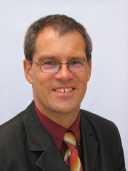 |
|
 |
|
Bertrand Matthäus
Detmold
|
|
Christian Gertz
Hagen
|
|
|
Lecturers
[31.03.2016]
 Markus Boner
Markus Boner
Agroisolab GmbH, Jülich, Germany
 Prof. Richard Brereton
Prof. Richard Brereton
Brerton Consultancy, Bristol, UK
Professor Richard Brereton was awarded his BA, MA and PhD at the University of Cambridge, where he also did his postdoc and then subsequently
was appointed to the staff of the University of Bristol where he has remained. He is Director of Brereton Consultancy. He is Fellow of the Royal
Society of Chemistry, Fellow of the Royal Statistical Society and Fellow of the Royal Society of Medicine.
He has over 367 publications to his
name, of which 173 are academic journal articles, and 7 are books. His latest book is Chemometrics for Pattern Recognition (Wiley, 2009). He is
currently Editor-in-Chief of Heritage Science, Columnist for Journal of Chemometrics and on the Editorial Board of Chemometrics and
Intelligent Laboratory Systems among others. He has given 172 invited lectures worldwide. His main expertise is in Multivariate Pattern
Recognition primarily for classification, including One Class Classifiers and Partial Least Squares Discriminant Analysis among other
techniques, as applied to a wide variety of problems.
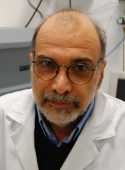 Prof. Lanfranco Conte
Prof. Lanfranco Conte
University of Udine, Italy
Academic curriculum:
since 1994: Full Professor of Food Chemistry at University of Udine
1992-1994: Associate Professor of Chemical Analysis of Foods at at University of Udine
1982-1992: Chief Chemist at Inspectorate for food fraud detection (Laboratory of Bologna,
Italian Ministry of Agriculture, Food and Forestry) Laboratory work of assessment of purity
and quality of different foods: olive oil, seed oils, cheeses (extraneous milk detection), wine (diethylene glycol, methanol)
1973-1982 – Laboratory technician at University of Bologna – Cooperation in researches in lipid chemistry
Research fields:
Chemistry of edible lipids, with peculiar attention to olive oils and stability problems, studies on oxidative rancidity, studies on
volatile fraction of several foods (GC-MS). Development and validation of methods to assess purity and quality of foods
as well as presence of contaminants (PAHs, MOSH, MOAH, Phtalates etc). Development of advanced analytical techniques:
Co author of about 150 papers in journals with IF, of 7 book chapters, and 1 book devoted to sample preparation.
In November 2015, Web of Science attributed an h-ndex of 31.
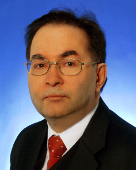 Dr. Hans Otto Cullmann
Dr. Hans Otto Cullmann
Comicon GmbH, Hamburg, Germany
Education
Study of chemical process engineering at the University of Applied Science in Juelich
Study of chemistry at the University of Cologne
Study of computer science at the University of Cologne
Employment
Lab manager, quality manager and application manager at the 'Harburger Oelwerke' in Hamburg - now Cargill
Since 1995 managing director of the comicon GmbH Hamburg
Experience
Chemistry of edible oils and fats
Product development of oil and fat blends for various applications
Development of software solutions for lab automation eg fully automated determination of Solid Fat Content, fully automated FatLab etc.
Development of methods and software solutions for calculation and simulation of oil and fat blends, among others a method to calculate
the Solid Fat Content of oil and fat blends on the PC.
Memberships:
GDCh - German Chemical Society
DGF - German Society of Fat Science
Euro Fed Lipid - European Federation for the Science and Technology of Lipids
AOCS - American Oil Chemist Society
 Dr. Bernd W. K. Diehl
Dr. Bernd W. K. Diehl
Spectral Service AG, Cologne, Germany
born 14.08.1960
Married, 4 Children
Education:
Dr. rer. nat, Dipl. Chemist, Philipps University Marburg 1988
Organic chemistry and NMR Spectroscopy
Employment:
Bayer Research Center, 1988 until 1990,
1990 founder and CEO of Spectral Service AG
Part time university lecturer at the Universities of Marburg and Bonn
Actually at the University of Applied Science Bonn-Rhein-Sieg
Habilitation in Pharmacy at University of Würzburg in progress
Associations/ Memberships:
President of I.L.P.S. (International Lecithin and Phospholipid Society)
Chair of AOCS (American Oil Chemist Society) Phospholipid Division,
Member of ACS, GDCh, DGF, Euro Fed Lipid
 Dr. Christian Gertz
Dr. Christian Gertz
Hagen/Westphalia, Germany
Dr. Gertz was director of the Official Institute of Chemical and Food Analysis in Hagen. His experience in fats and oils
extends over 35 years.
Since 1997 he has co-chaired the Analysis and Standard Methods division of German Society for Fat Science (DGF) and has been
responsible for the editing of the DGF Standard Methods for many years.
He is member of the "Joint Committee for the Analysis of Fats, Oils, and Fatty Products" of DIN, Federal Health Office and DGF.
He is also involved with various international working groups in Europe and the German Sensory Panel of Olive Oil.
He has published more than 70 scientific papers including 3 book chapters and edited 2 books. His area of research includes all
aspects of frying processing (analytics, HACCP, thermooxidative degradation, heat stabilizing agents, fat quality) and analysis
of fats and oils (Olive oil and the development of chemometric methods to identify fats and oils).
His awards include: in 1982, the Josef Schormüller Foundation by the German Food Chemical Society and in November 2004 he received
the Normann Medal by the German Society for Fat Research (DGF).
 Dr. Torben Küchler
Dr. Torben Küchler
Eurofins Analytik GmbH, Hamburg, Germany
Food chemist, degree and doctorate at the University of Hamburg (research group of Prof. Steinhart)
From 2007 Head of Research & Development at Eurofins Analytik GmbH in Hamburg
Since 2011 Head of the Department of General Food Analysis at Eurofins Analytik GmbH in Hamburg.
Work areas are amongst others:
• Analysis of physical-chemical parameters in food and feed for manufacturers, retail and trade, focusing fats & oils,
nutrition facts and marketability / authenticity of foods.
• Method development and method optimization for testing of identity, authenticity and quality in fats and oils
Participation in national and international bodies:
• Joint committee of DIN and DGF for the analysis of fats, oils and products thereof, related and primary products (GA Fett)
• ISO/TC 34/SC 11 - Animal and vegetable fats and oils
• ISO/TC 34/SC 2 - Oleaginous seeds and fruits and oilseed meals
• CEN/TC 307 - Oilseeds, vegetable and animal fats and oils and their by-products - Methods of sampling and analysis
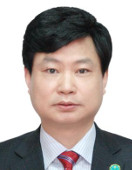 Dr. Peiwu Li
Dr. Peiwu Li
Oil Crops Research Institute
Chinese Academy of Agricultural Sciences, Wuhan, China
-Professor in Oil Crops Research Institute, Chinese Academy of Agricultural Sciences,
-Director of Quality & Safety Inspection and Test Center for oilseeds products, MOA
P.R. China
-Director of Key Laboratory of Detection for Mycotoxins, MOA, China
-Director of Laboratory of Quality & Safety Risk Assessment for Oilseed Products, MOA, China
Research interests
Authentication and traceability of edible oil and agricultural food
HPLC/GC-MS-based analytical methods for agricultural food quality & safety
Development of home-built monoclonal antibody against biotoxin and pesticides
Immunoassay-based rapid assay for biotoxin and pesticide
Miniaturized instrument and micro-instrument for determination of biotoxin
Standards and arbitration inspection for agricultural food quality and safety
Risk assessment of agricultural food, especially oilseed products
Biotoxin-producing mechanism and prevention/control of hazards in Agro-food
International cooperation
Max Rubner-Institute, Detmold, Germany
Technische Universitaet München
Canadian Grain Commission (CGC)
Royal Veterinary and Agricultural University, Denmark
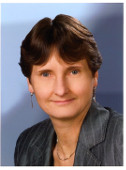 Dr. Andrea Steck
Dr. Andrea Steck
Bruker BioSpin GmbH, Rheinstetten, Germany
Diploma and PhD in Organometallic Chemistry & NMR Spectroscopy (TU Munich, Germany)
1992 - 1997 Postdoctoral Position and Research Associate - NMR method development and international projects on structure
elucidation by NMR of natural products, University of Berne, Switzerland
1998 - 2008 Head of Analytics Laboratory (Research Investigator II) at Novartis Institutes for BioMedical Research GmbH & Co KG, Vienna, Austria
2008 - 2010 Manager Pursuant to Trade Law (Gewerberechtl. Geschäftsführerin) of the Bruker Analytical Services Austria laboratory (NMR) -
Bruker Austria GmbH, Vienna, Austria
Since October 2010 Application Chemist and Quality Manager ISO-17025 (since 01-2015) - Bruker Biospin GmbH, Rheinstetten, Germany
Current fields of activity
- Head of Analytical Service
- Responsible for ISO-17025 accreditation as Quality Manager
- Method development, focused on food screening by NMR (edible oils, spirits)
 Dr. Bertrand Matthäus
Dr. Bertrand Matthäus
Food Chemist, Scientist at the Max Rubner-Institute, Federal Research Institute for Nutrition and Food, Detmold, Germany
In this position he is responsible for research dealing with the improvement of the quality of fats and oils, especially rapeseed
oil, with the investigation of frying processes, with contaminants like acrylamide, phthalates or 4-hydroxy-2-trans-nonenal,
3-MCPD-esters and with the investigation of oxidation processes in edible fats and oils.
Since more than 20 years he has worked for the Max Rubner-Institute. He has published more than 200 articles, scientific papers and
chapters of books. In several projects he worked together with the industry to evaluate and improve the quality of frying oils but
also virgin rapeseed oil. He has presented lectures during the last four International Symposiums on Deep-Fat Frying held in Germany
and USA and is co-organizer of several symposiums on Fats and Oils given for the industry. Matthäus is a member of the Euro
Fed Lipid association and the German Society for Fat Science.
 Dr. Paul Miller
Dr. Paul Miller
Coonalpyn, Australia
Paul Miller is an agricultural scientist with over 35 years working as a researcher, industry leader and farmer.
His research background is in plant physiology, chemistry and the climatic responses of fruit trees and grape vines. His commercial
interests are in the olive oil and wine industries where he has overseen the development and management of large scale farms in Australia.
He consults to businesses in the olive industry in several countries and is a regular invited speaker about olive oil quality and
authenticity around the world.
Paul has led the development of the Australian olive industry as President of the Australian Olive Association from 2001 to 2015.
His focus has been olive oil quality, authenticity and overcoming fraud in the marketplace. Paul spearheaded the development of the
Australian Standard for Olive Oil (AS5264-2011) introducing effective science to better define olive oil quality for the trade and to help
prevent fraud. Paul is a founding member of the American Oil Chemists Society (AOCS) Expert Committee on Olive Oil and an invited
founding member of the Division of Olive Oil, Euro Fed Lipids society. He is an invited member of the United States
Pharmacopeia expert committee on olive oil standards of identity. In January 2012 Paul co-founded the Extra Virgin Alliance (EVA)
based in California – an alliance of olive oil producers, experts and trade associates from 13 countries.
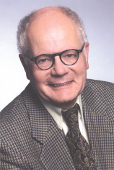 Dieter Oberg
Dieter Oberg
Wessling, Germany
Study at the „Akademie for Graphic Arts“ in Munich, 1971 founder of the Public Relation Agency „Syntax“ in Munich / Germany.
Since 1988 supervisor of the Information Office Olive Oil (IGO), today President of the “Association for care and support of the
value of extra virgin Olive Oils e.V.” in Wessling/Germany.
17 years in charge for carrying out the Olive Oil promotion programms for the European Commission. Generic promotion and Public Relations in
Germany, Denmark and Austria. Research and diffusing of scientific findings about the nutrition value of Olive Oil for medical doctors and
nutritionists. Numerous lectures, workshops and seminars partly incl. degustations for the European Commission, IOC, AOCS, DGF, DGE, VKD
among other institutions. Since 2002 lecturer at the University of applied sciences in Wädenswil/Zurich (Switzerland) for Olive oil sensory items.
In addition member and Co-trainer of the Swiss panel.
Lecturer for interprofessional organisations, various international chambers of commerce, commercial divisions of embassies, wine & food societies.
Founder and 17 years supervisor of the German Olive Oil Panel (DOP), accredited by DAkkS, certified by the the International Olive Council,
Madrid – from 2016 acting as deputy supervisor and tester. Close cooperations with panels in Italy, France, Greece, Portugal, Spain and Switzerland.
Research and creating of the accredited method DOP 2007-1 for setting the harmony value as an official parameter in addition to the official
COI/EU paneltest. Due to the philosophy of the Association mass market segments are as well included in the practical work as premium class
segments. Presentations on many Olive Oil affine Workshops.
Advisor and trainer for creating new organoleptic panels. Member of international jurys for olive oil competitions like PremioBiol (Italy),
IOOA (Switzerland), FILAIOS Competition (Greece), Selection and Feinschmecker (Germany).
 Dr. Franz Ulberth
Dr. Franz Ulberth
European Commission, Joint Research Center, Geel, Belgium
Franz Ulberth is Head of the Standards for Food Bioscience Unit at the European Commission's Joint Research Centre – Institute for Reference
Materials and Measurements (JRC-IRMM). Franz graduated (PhD) in "Food Science and Biotechnology" from the University of Natural Resources and
Applied Life Sciences (BOKU) in Vienna, Austria. In 1994 he was appointed professor of food chemistry at the same university. Franz joined
JRC-IRMM in 2002 as a programme co-ordinator for food and environmental reference materials at the IRMM.
In 2007 Franz was nominated Head
of the Standards for Food Bioscience Unit at the JRC-IRMM. He represents the Joint Research Centre in relevant food related technical
committees of standards developing organisations such as the European Committee for Standardization, International Organization for
Standardization, AOAC International and the Codex Alimentarius. Franz served for a long time on the editorial board of Food Chemistry,
European Journal of Lipid Science and Technology, and currently is editorial board member of Food Additives and Contaminants.
 Dr. Ole Winkelmann
Dr. Ole Winkelmann
Eurofins Analytik GmbH, Hamburg
Chemist, obtained Diploma and PhD in Organic Chemistry at the University of Kiel, Germany
2009 Post-doctoral position at the University of Hawaii at Manoa, USA
since 2010 Post-doctoral position at Eurofins WEJ Contaminants GmbH, Hamburg, Germany
since 2012 Project Manager NMR at Eurofins Analytik GmbH, Hamburg, Germany
Field of activity:
- Method development for analysis of foodstuff by 1H-NMR
- Quantitative 1H-NMR analysis of food constituents
- Chemometric analysis of 1H-NMR-data for classification and authentication of foodstuff
- Main focus: Classification of olive oil according to geographical origin
 Matthias Filter
Matthias Filter
Federal Institute for Risk Assessment, Berlin, Germany
Matthias Filter is senior research scientist in the unit “Food Technologies, Supply Chains and Food Defense” at the Federal Institute
for Risk Assessment (BfR), Germany. Matthias coordinated several software development and modeling activities within the BfR.
In several national and international research projects Matthias promoted the idea of standardized information exchange as the
basis for harmonization, transparency and knowledge generation. Matthias holds a diploma in Biochemistry and has been working as
research scientist and project manager in public and private sector organizations for more than 10 years.
He has been appointed as external advisor for EFSA and several EU research projects.


 Markus Boner
Markus Boner Prof. Richard Brereton
Prof. Richard Brereton Prof. Lanfranco Conte
Prof. Lanfranco Conte Dr. Hans Otto Cullmann
Dr. Hans Otto Cullmann Dr. Bernd W. K. Diehl
Dr. Bernd W. K. Diehl Dr. Torben Küchler
Dr. Torben Küchler Dr. Peiwu Li
Dr. Peiwu Li Dr. Andrea Steck
Dr. Andrea Steck Dr. Paul Miller
Dr. Paul Miller Dieter Oberg
Dieter Oberg Dr. Franz Ulberth
Dr. Franz Ulberth Dr. Ole Winkelmann
Dr. Ole Winkelmann Matthias Filter
Matthias Filter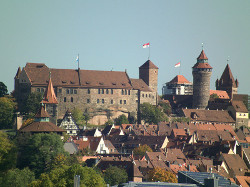
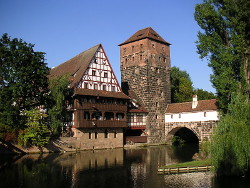
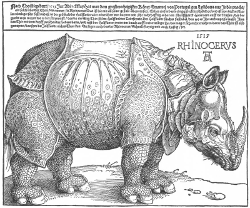 >
>